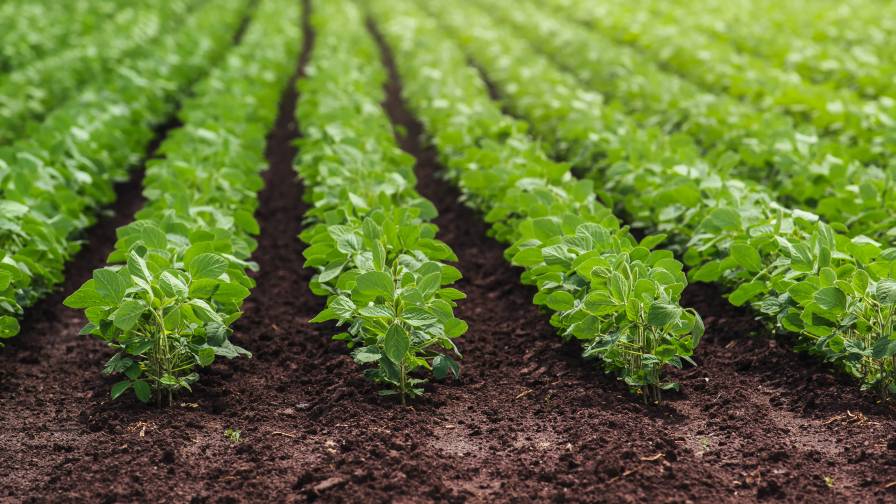The BioAg Alliance Advances New Microbial Solutions For Agriculture
The BioAg Alliance, Monsanto’s and Novozymes’ collaboration to improve crop harvests through products containing naturally-occurring microbes, has announced results from its 2016 field trial program and shared an updated research pipeline. Yield increases among top microbial strains averaged over 3 bushels per acre for corn and over 2 bushels per acre for soy.
Among the pipeline highlights is the Corn BioYield 2 project, which builds upon the recently-launched Acceleron B-300 SAT. Field trial results in 2016 showed Corn BioYield 2 project strains – combined with Acceleron B-300 SAT – increasing corn yields by up to an average of 5 bushels per acre over a base Acceleron seed treatment. A Corn BioYield 2 product is expected to launch in 2019. In earlier stages of development are other yield-increasing products for corn and soy, and a microbial product that can protect soy plants against nematodes. The Alliance also announced that it will start developing new products for wheat, the third crop in its pipeline.
The BioAg Alliance will introduce two new products in 2017. Acceleron B-300 SAT is a corn inoculant based on a fungus found in soil. The fungus grows along the roots of corn plants and increases nutrient uptake to the plants. Acceleron B-200 SAT stimulates the growth of beneficial microbes in the soil to improve nutritional uptake of soy plants, which can lead to improved soy plant health.
“We have great new products on the market that will help farmers produce more crops in a sustainable way,” said Colin Bletsky, Novozymes’ Vice President for BioAg. “We continue to increase our understanding of how plants and microbes interact and this is reflected in our strong pipeline. It will help propel biological solutions from agricultural niche to industry mainstream over the coming decade.”
“This year’s field trial results are especially encouraging given the backdrop of overall record crop yields in 2016,” said Juan Ferreira, Vice President of Monsanto’s Vegetable Seeds, Seed Applied Solutions and Crop Protection businesses. “Our field testing program remains the largest, most extensive and integrated compared to others in the industry. We are automating our data collection and integrating our field testing network, and with each season of field trials, we are getting even better at evaluating microbe and environment interactions to understand and optimize precise product placement.”
BioAg Alliance biological products are derived from naturally-occurring microbes such as bacteria and fungi. The Alliance markets BioYield products, which help plants with nutrient uptake, and BioControl products, which help protect plants against pests and diseases. The products can be applied to seeds before planting, to soil in-furrow, or to growing crops. They can be used by farmers that grow broad-acre crops such as corn and soy, and on fruits and vegetables. Microbial products can increase crop yields and complement or replace agricultural chemicals and fertilizers, while helping farmers reduce the amount of CO2 produced from their land.
BioAg Alliance products are currently used on more than 80 million acres of farm land, primarily in North and South America. The Alliance is targeting to provide 250-500 million acres of BioAg technology upgrades by 2025.
The 2016 field trial results were announced as part of Monsanto’s annual pipeline update. For more information, go to www.monsanto.com/pipeline.
Pipeline highlights
- Acceleron B-200 SAT enhances soy plants’ nutritional uptake. The product existed in Novozymes’ portfolio before the formation of The BioAg Alliance, but is now being applied as part of Monsanto’s Acceleron product line. Acceleron B-200 SAT is available in 2017.
- Acceleron B-300 SAT is the world’s first upstream corn inoculant. It increases plants’ ability to take up nutrients and is an improved formulation of the JumpStart inoculant (Penicillium bilaiae), a product that existed in Novozymes’ pipeline before the formation of The BioAg Alliance. Acceleron B-300 SAT has been shown to increase yields by an average of more than 3 bushels per acre and is available in 2017.
- The Corn BioYield 2 project combines Acceleron B-300 SAT with the signal molecule LCO (lipo-chitooligosaccharide) to enhance natural growth processes such as root and shoot development and improve nutrient uptake. Corn BioYield 2 strains have delivered up to an average of 5 bushels per acre yield increase in 2016 field trials. Estimated launch: 2019.
- The Corn BioYield 3 project – The BioAg Alliance is testing multiple microbial strains for a new corn inoculant. The leading strains have shown to increase yields by more than 3 bushels per acre. Corn BioYield 3is anticipated to be the first product invented and developed from discovery to launch through The BioAg Alliance.
- The Soy BioNematicide project is expected to provide an additional tool for growers to control nematodes, microscopic parasitic worms that damage plants. This microbial product is expected to show activity against different nematodes, including soybean cyst nematode. The Alliance will continue field tests to confirm efficacy in combination with a range of other chemical and biological seed treatments.
What is an inoculant?
Some microbes provide a beneficial effect when added to soil or plants. They can enhance availability and uptake of nutrients, for example by fixing nitrogen from the air or by mobilizing inorganic soil phosphates so these nutrients become available to plants. These products are called inoculants.
What is a field trial?
Agricultural field trials are conducted to compare the yields of different varieties of crops or crop inputs under realistic conditions in the field. These trials are an important part in the development of products in agriculture as they help assess the performance of the new product and provide data that can be used to develop application recommendations. Field trials typically involve several phases where results from small-scale trials can be used for further screening of plants in larger field trials.






